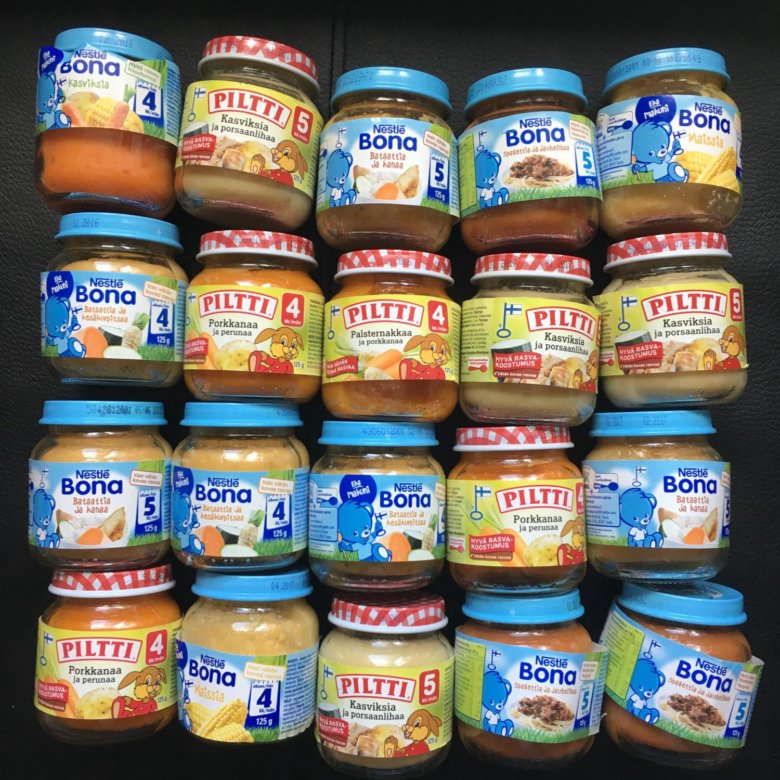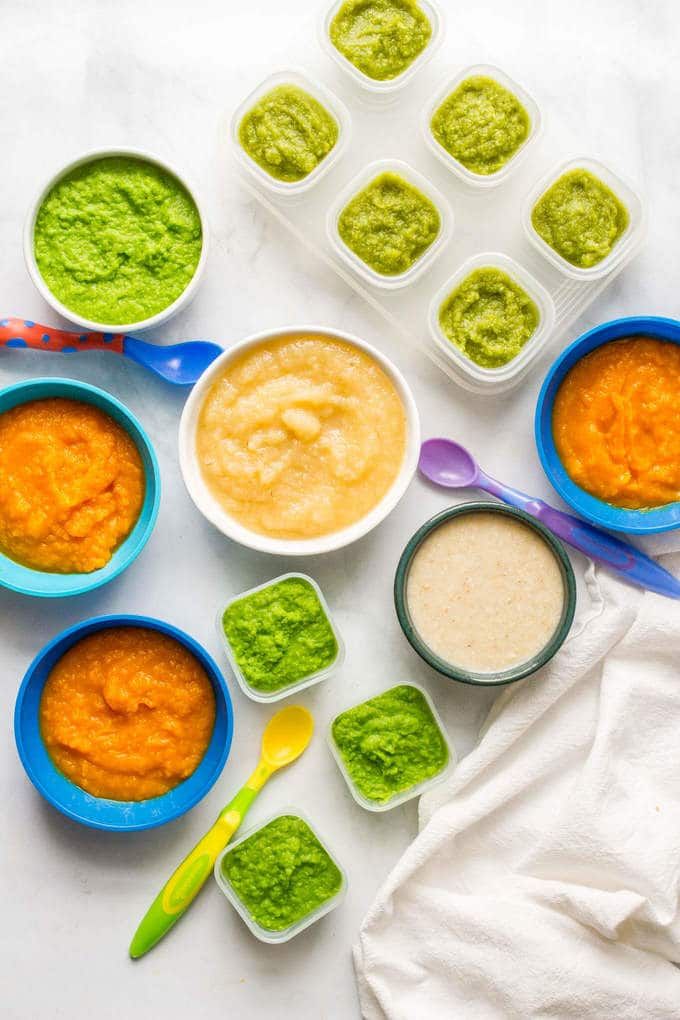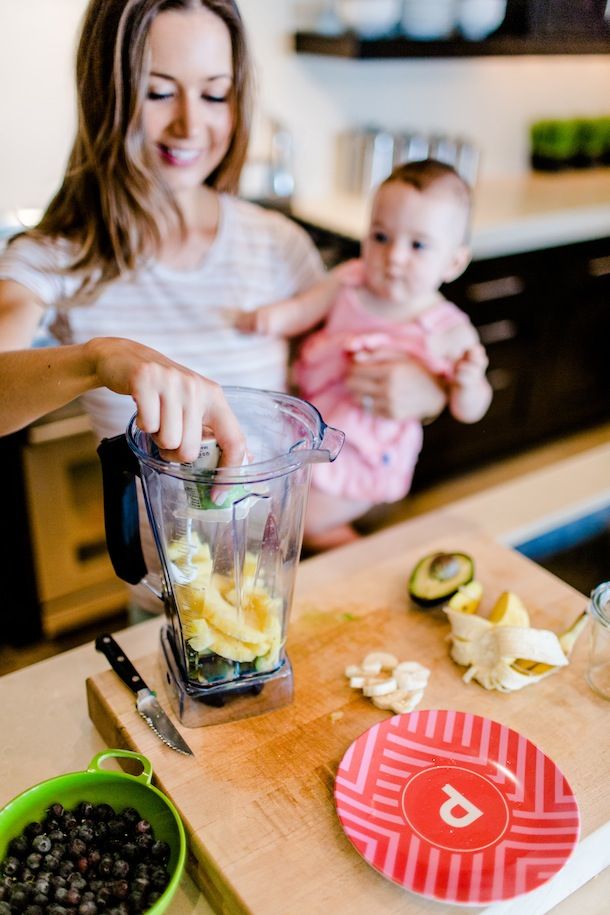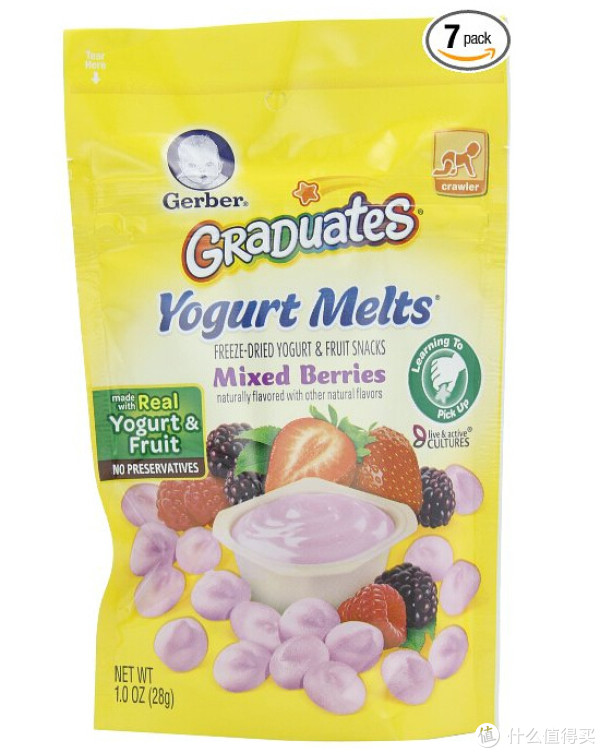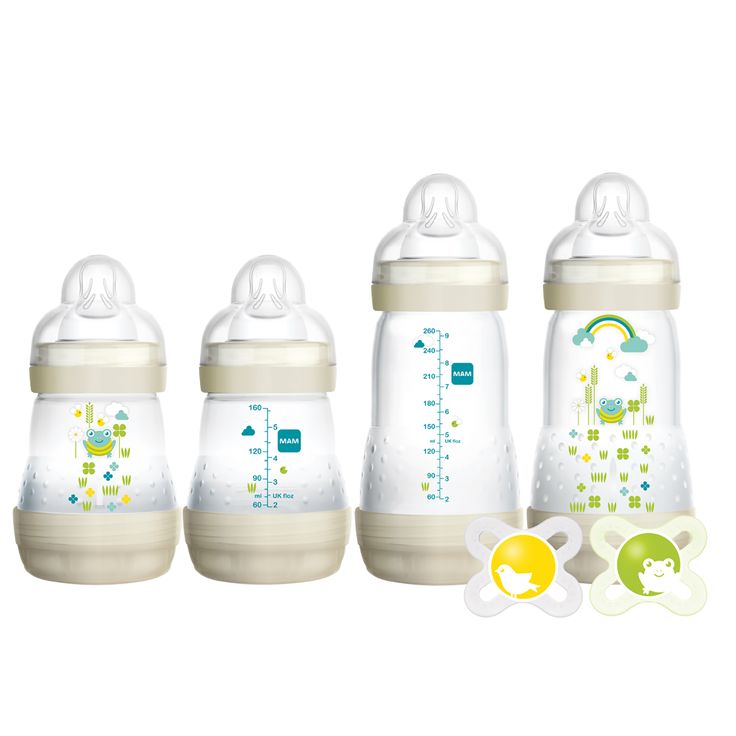Baby food arsenic recall
Baby Food Products Recall 2022: Are There Harmful Chemicals & Toxic Metals In Your Baby’s Food? Gerber, Happy Baby, Beechnut, etc.
Updated on 17 September 2022 • 13 minute read
15246
Overview
Did you know that 95% of baby food products contain harmful chemicals and toxic metals — and many are from the most popular brands? (1)(2)
These baby foods contain dangerously high levels of arsenic, lead, mercury, and cadmium.
Exposure to these heavy metals can cause permanent damage to your baby’s brain development. It may lead to IQ decrease and antisocial behavior. (3)(4)
Have these contaminated products been recalled? Did the baby food makers solve the problem and compensate the affected consumers?
Read on to get answers to your baby food recall concerns.
Baby Formula Recall & Shortage 2022
Update: May 11, 2022
Baby Formula Shortage 2022
Although prepared in liquid form, infant formula is also baby food.
That’s why the baby formula shortage of 2022 makes parents worried, especially after recent reports from research firm Datasembly showed that the nationwide out-of-stock rate has reached 43%. (5)
According to the CDC (Centers for Disease Control and Prevention), as many as 75% of babies in the US are likely given formula products by six months of age. (6)
Worried parents and caregivers are having a difficult time finding stocks, especially because formula retailers are also rationing available supplies.
Many areas, such as Texas and West Virginia, temporarily expanded the WIC program (Women, Infants and Children) to include other formula brands. (7)(8)
The baby formula shortage began during the pandemic and was first attributed to supply chain issues. However, the massive recall of Similac products worsened the shortage.
Similac Infant Formula Recall 2022
In February 2022, Abbott Nutrition issued two recall announcements after their products were linked to Cronobacter Sakazakii and Salmonella infection, which led to several hospitalizations and two infant deaths.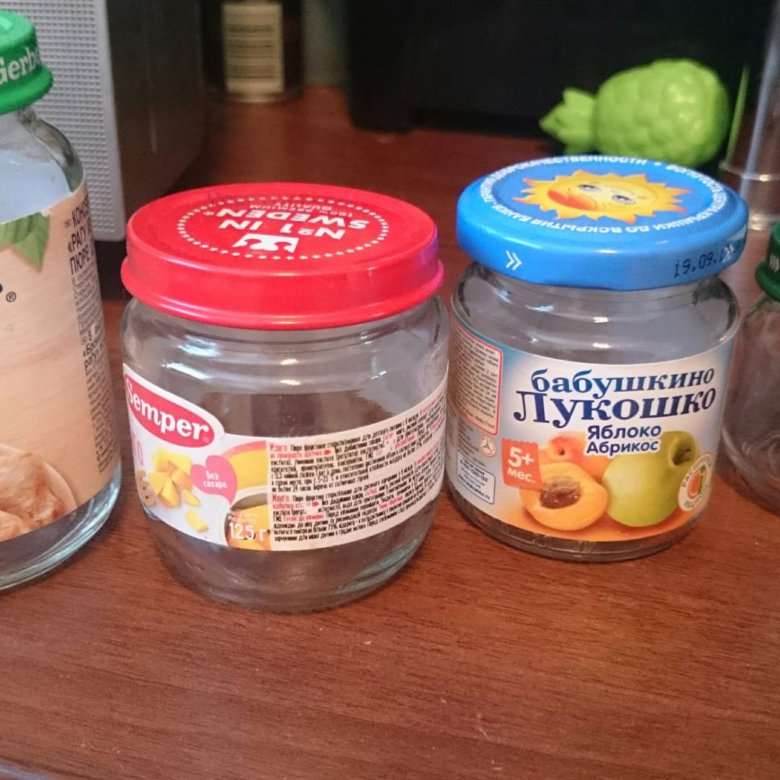 (9)
(9)
The company also received multiple consumer complaints of infants getting sick after taking the formulas.
Infant formula products that are part of the recall: (10)
- First recall: Similac, Alimentum, and EleCare powdered infant formulas
- Second recall: One lot of Similac PM 60/40, with lot number 27032K80 (can) or 27032K800 (case)
Liquid formulas aren’t included in the recalled products.
Ingestion of infant formula contaminated with Cronobacter Sakazakii and Salmonella can lead to meningitis and sepsis. Symptoms can include the following: (9)
- Temperature changes
- Grunting breaths
- Unusual movements
- Irritability
- Poor feeding or no appetite
- Jaundice (yellow skin and whites of the eyes)
Newborns and young babies are more prone to experiencing serious symptoms. Call your healthcare provider if you notice any of these symptoms.
Call your healthcare provider if you notice any of these symptoms.
Although the infant deaths were determined to be due to Cronobacter Sakazakii infection, Abbott Nutrition maintains that the strains found in the investigation of the bacterial infections don’t match those in their facility in Sturgis, Michigan, and the recalled products. (10)
Alarming 2021 Government Report Findings
In February 2021, a congressional report by the Subcommittee on Economic and Consumer Policy called out major baby food manufacturers for selling products tainted with dangerous levels of toxic heavy metals. (2)
Which Baby Food Brands Are Toxic?
These name brands were listed:
- Nurture, Inc. (HappyBABY and HappyTOT)
- Beech-Nut Nutrition Company (Beech-Nut)
- Hain Celestial Group, Inc. (Earth’s Best Organic)
- Gerber
- Campbell’s Plum Organics
- Walmart Inc.
 (Parent’s Choice)
(Parent’s Choice) - Sprout Foods, Inc. (Sprout Organic Foods)
Eight months later, the same subcommittee released a second baby food report in September 2021.
This follow-up report found that many of the same brands called out previously were still producing and under-reporting baby products that tested at much higher levels than considered safe.
Is There A Recall On Gerber Baby Food 2021?
What’s more concerning, companies such as Gerber failed to disclose these alarming results to the public and kept these tainted products on the market thereby failing to protect consumers. (2)
Spearheading the subcommittee reports is Rep. Raja Krishnamoorthi, who released this statement on his official Instagram page:
“My Subcommittee’s investigation has pulled back the curtain on the baby food industry, and each revelation has been more damning than the last.
I’ve released a new report on toxic metals in baby food, including popular brands such as Gerber’s Infant Rice Cereal products containing dangerous levels of inorganic arsenic.
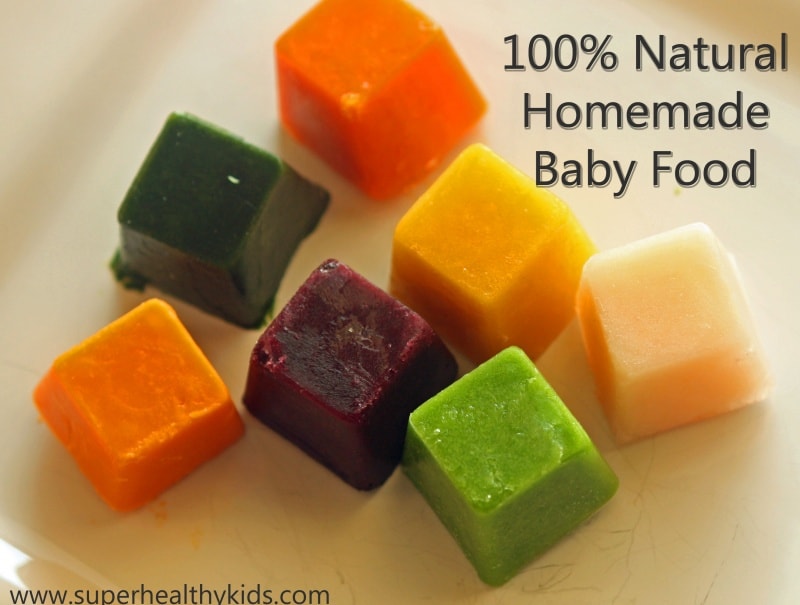
We trust these companies with our babies, and they have failed us.”
Is There A Baby Food Recall 2021?
Parent’s Choice Rice Baby Cereal
- Date Recalled: October 08, 2021
- Reasons For Recall: The products tested above government standards for naturally occurring inorganic arsenic (11)
- Company: Maple Island Inc.
- Return or Refund Processing: Call 1-800-369-1022 or email at [email protected]
Affected products are 8-oz. packages of Parent’s Choice Rice Baby Cereal (UPC number 00681131082907) from these lots: (11)
- Lot 21083 with a best-if-used-by date of June 24, 2022
- Lot 21084 with a best-if-used-by date of June 25, 2022
- Lot 21242 with a best-if-used-by date of November 30, 2022
No illnesses have been reported in this recall and no other Parent’s Choice products have been affected.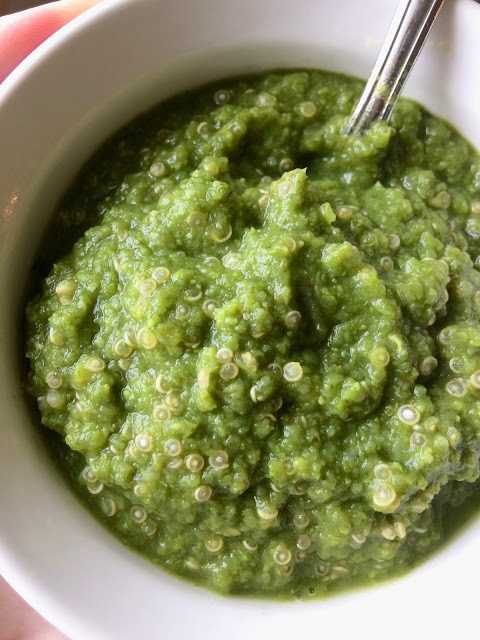 (11)
(11)
Beech-Nut Single Grain Rice Cereal
- Date Recalled: June 8, 2021
- Company Name: Beech-Nut
- Reasons For Recall: High arsenic levels
- Affected Products: UPC Code# 52200034705; Product codes 103470XXXX and 093470XXXX; Expiration date 01 MAY 2022 (12)
- Return or Refund Processing: www.beechnut.com/ricecereal or 1-866-272-9417
Statement from Jason Jacobs, Beech-Nut‘s vice president for food safety and quality: (13)
“The safety of infants and children is Beech-Nut‘s top priority. We are issuing this voluntary recall because we learned through routine sampling by the State of Alaska that a limited quantity of Beech-Nut Single Grain Rice Cereal products had levels of naturally-occurring inorganic arsenic above the FDA guidance level, even though the rice flour used to produce these products tested below the FDA guidance level for inorganic arsenic.
”
Peppa Pig Chocolate Chip Cookies Gable Box
- Date Recalled: May 20, 2021
- Company Name: Primary Colors Design Corp.
- Reasons For Recall: Undeclared egg content (allergen)
- Affected Products: UPC 84512050159; lot 091820; expiration date 09/18/2021 (14)
- Return or Refund Processing: [email protected] or 419-903-0403
What Baby Food Brands Are Being Recalled?
- Parent’s Choice
- Beech-Nut
- Peppa Pig
There have also been food recalls in 2020 and previous years:
Baby Food Recall 2020
Lidl Lupilu Pouches (UK)
- Date Recalled: February 12, 2020
- Company Name: Lidl
- Reasons For Recall: Possible presence of mold (15)
- Return or Refund Processing: Return to store for a refund
Affected Products (all batches/lots of these Lupilu pouches):
- Apples & Strawberries, Stage 1
- Bananas & Apples, Stage 1
- Banana & Peaches, Stage 1
- Apples, Carrots, & Parsnips, Stage 1
- Butternut Squash, Apples, Carrots & Prunes, Stage 1
- Sweet Potato, Pumpkin, Apples & Blueberries, Stage 1
- Organic Apple, Stage 1
- Banana Yoghurt with Oats & Rice, Stage 2
- Banana, Blueberries, & Rice, Stage 2
- Mango Yoghurt with Oats & Rice, Stage 2
Cow & Gate Baby Food Jars (UK)
- Date Recalled: January 25, 2020
- Company Name: Cow & Gate; Tesco
- Reasons For Recall: Possible tampering of these products in Tesco stores in the UK (United Kingdom).
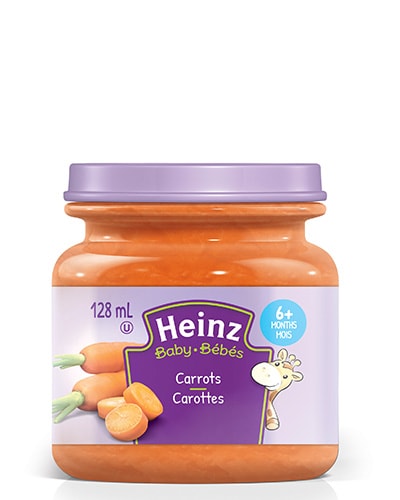 (16)
(16)
- Return or Refund Processing: Tesco Customer Services (0800-917-6897) or Cow & Gate (0800-977-8880).
Affected Products (all batches/lots of Cow & Gate 7+ months variants in 200g jars):
- Butternut Squash Chicken & Pasta
- Courgette & Hake Rice
- Creamy Cauliflower Cheese
- Garden Pea & Turkey
- Potato Spinach & Beef
- Potato & Turkey Roast
- Spaghetti Bolognese
- Succulent Pork Casserole
- Tasty Cottage Pie
- Tomato & Courgette Pasta
- Yummy Harvest Chicken
- Apple Crumble
- Banana Crumble
- Peach Apple & Kiwi
- Rice Pudding
Baby Food Recall 2019
Herbal Tea for Infants by Mountain Mel’s
- Date Recalled: August 29, 2019
- Company Name: Mountain Mel’s Essential Goods, LLC
- Reasons For Recall: Possible contamination with Salmonella (bacteria that causes fever, diarrhea, and muscle cramps).
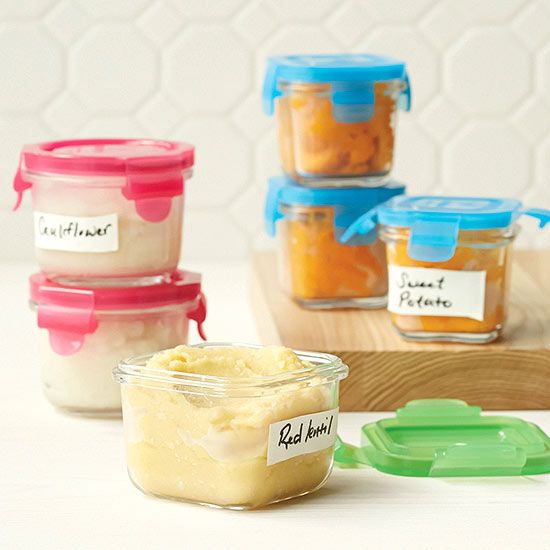 (17)
(17)
- Return or Refund Processing: [email protected] or 503-564-9135.
Affected Products (all stamped with “best before date: 7/2021”):
- The Milk Lady’s Tea; UPC 7-99632-05658-4 with LOT# ML6271950
- Peaceful Baby Herbal Tea; UPC 7-99632-05656-0 with LOT# PB781950
- Diges-Teas Herbal Tea; UPC 7-99632-05665-2 with LOT# DT7619100
Heinz Turkey Stew 8+ Baby Food (Canada)
- Date Recalled: August 16, 2019
- Company Name: Kraft Heinz Canada
- Reasons For Recall: Possible presence of insects
- Affected Products: UPC 0-572200-6; product code 2021JN04 (18)
- Return or Refund Processing: [email protected] or 1-866-572-3809
Cow & Gate Cheesy Broccoli Bake, Stage 3 (UK)
- Date Recalled: May 13, 2019
- Company Name: Cow & Gate
- Reasons For Recall: May contain small pieces of blue rubber (19)
- Affected Products: Batch code 28122020, best before date: 28 December 2020
- Return or Refund Processing: live chat at www.
 cgbabyclub.co.uk/contact-us or call 0800-977-4000
cgbabyclub.co.uk/contact-us or call 0800-977-4000
Baby Food Recall 2018
Love Child Organics (Canada)
- Date Recalled: May 26, 2018
- Company Name: CGL FDS, Greenspace Brands Inc.
- Reasons For Recall: Packaging defects may allow entry of spoilage microorganisms (20)
- Return or Refund Processing: Return to the store where you got them.
Affected Products (all with best before date code: 2019MA25):
- Vegetarian Chili with Sweet Potato + Kale; UPC 85886000170
- Veggie Casserole with Lentils + Quinoa; UPC 85886000171
- Ratatouille with Lentils + White Beans; UPC 85886000172
- Pumpkin Risotto with Spinach + Chickpeas; UPC 85886000173
- Mango Chicken Stew with Spinach + Quinoa; UPC 85886000174
- Thanksgiving Dinner with Veggies + Turkey; UPC 85886000175
- Hearty Bolognese with Beef + Quinoa; UPC 85886000176
PC Organics Baby Food Recall (Canada)
- Date Recalled: May 26, 2018
- Company Name: CGL FDS, Greenspace Brands Inc.
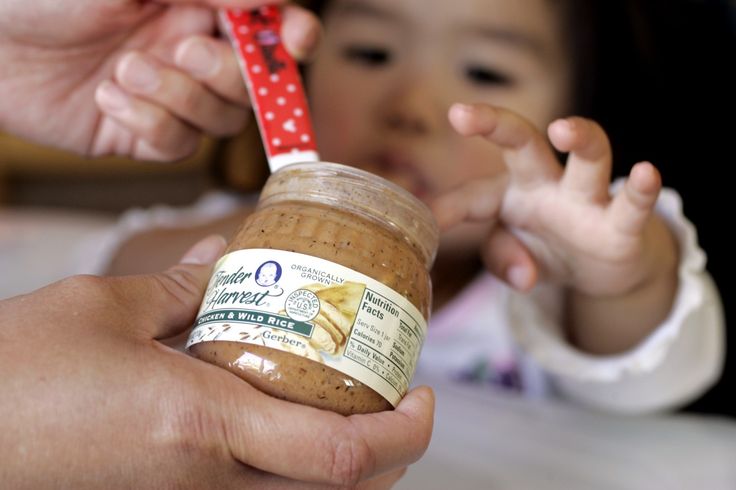
- Reasons For Recall: Packaging defects may cause spoilage (20)
- Return or Refund Processing: Return to the store where you purchased them.
Affected Products (all strained baby foods with best before date code: 2019MA25):
- Carrots; UPC 060383172800
- Parsnip; UPC 060383172817
- Peas; UPC 060383172824
- Sweet Potatoes; UPC 060383172831
- Vegetables & Turkey; UPC 060383174408
- Fruity Chicken; UPC 060383174415
- Spaghetti Bolognese; UPC 060383193201
- Vegetable & Lentil; UPC 060383193218
- Chicken Casserole; UPC 060383193225
Baby Food Recall 2017
Yummy Spoonfuls Chicken and Vegetable Products
- Date Recalled: June 24, 2017
- Company Name: Overhill Farms, Inc.

- Reasons For Recall: Possible presence of crushed chicken bones (21)
- Return or Refund Processing: (844)-986-6948
Affected Products:
- Chicken & Carrot Bites; with best before dates 02/01/18, 02/09/18, & 4/26/2018.
- Chicken & Sweet Potato Bites; with best before dates 02/01/18 & 02/09/18.
- Chicken & Broccoli Bites; with best before dates 08/30/17, 02/20/18, & 4/10/18.
Fully Cooked Organic Chicken and Vegetable Products
- Date Recalled: June 24, 2017
- Company Name: Overhill Farms, Inc.
- Reasons For Recall: Possible presence of crushed chicken bones (21)
- Return or Refund Processing: (844)-986-6948
Affected Products:
- Chicken & Vegetable Patty; case code 320422 with packaging date 08/30/16.

- Chicken Patties with Carrots and Cauliflower; case code 320460 with packaging date 02/09/17.
- Chicken Patties with Sweet Potatoes, Quinoa, and Peas; case code 320430 with packaging dates 02/09/17 and 04/25/17.
Gerber Cheese Ravioli Pasta Pick-Ups
- Date Recalled: March 08, 2017
- Company Name: Gerber Products Company
- Reasons For Recall: Undeclared egg allergen components on the product label. (22)
- Affected Products: UPC code 159070
- Return or Refund Processing: 1-800-510-7494
PC Organics Baby Food Recall (Canada & US)
- Date Recalled: February 07, 2017
- Company Name: Loblaw Companies Limited
- Reasons For Recall: Manufacturing error may cause the growth of Clostridium botulinum (bacteria that causes food poisoning).
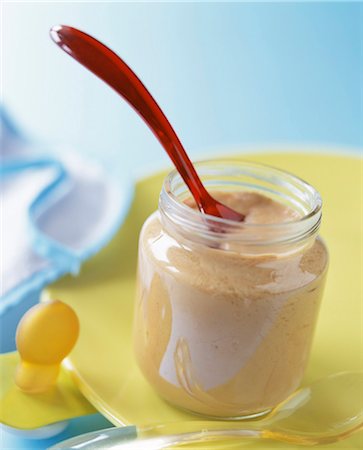 (23)
(23)
- Return or Refund Processing: Return to the store
Affected Products (all are strained baby foods or puree snacks)
- Apple, Blueberry & Green Pea; UPC 060383062927
- Apple Crisp Muffin flavor; UPC 060383137304
- Apple, Carrot, Apricot & Millet; UPC 06038306996
- Banana, Sweet Potato & Blueberry; UPC 06038305362
- Apple; UPC 060383028404
- Apple, Banana & Blueberry with Yogurt; UPC 06038304491
- Apple, Banana & Strawberry with Yogurt; UPC 06038304488
- Apple Cherry; UPC 06038302843
- Sweet Potato, Apple and Mango; UPC 06038306294
- Peach Maple Cobbler Flavour; UPC 060383137328
- Banana Apple & Carrot; UPC 06038305363
- Pumpkin, Apple, Peach & Buckwheat; 06038306995
- Prune, Apple, Butternut Squash & Quinoa; UPC 06038306994
- Pear; UPC 06038302842
- Mango, Apple, Carrot & Peach; UPC 06038305369
- Blackberry Cobbler Flavour; UPC 060383137311
- Banana & Kiwi; UPC 060383028466
- Mango; UPC 060383028411
- Banana & Raspberry; UPC 060383054809
- Banana, Apple, Apricot & Rice; UPC 06038305368
- Banana Bread Flavour; UPC 060383135898
- Pear, Apple and Broccoli; UPC 06038306291
- Sweet Potato, Banana & Apricot; UPC 06038305366
- Tropical Twist Smoothie with Greek Yogurt; UPC 060383154301
- Banana, Mango & Apple with Yogurt; UPC 06038304489
- Orange Twist Smoothie with Greek Yogurt; UPC 060383154318
- Prunes; UPC 060383169633
- Apple, Banana & Strawberry with Yogurt; UPC 060383184278
- Sweet Potato, Apple and Mango; UPC 060383184292
- Banana Apple & Carrot; UPC 060383184285
- Mango; UPC 060383184308
- Pear, Apple, and Broccoli; UPC 060383184261
Baby Food Recall 2016
H-E-B Baby Food Recall
- Date Recalled: November 18, 2016
- Company Name: H-E-B
- Reasons For Recall: Possible contamination with rubber (24)
- Return or Refund Processing: 1‑855‑432‑4438
Affected Products:
- Banana Passion Fruit; UPC 4122081488
- Banana Pineapple Mango; UPC 4122084761
- Green Beans; UPC 4122005670
- Banana Apple; UPC 4122000208
- Green Beans Corn; UPC 4122005671
- Banana; UPC 4122083207
- Squash, Sweet Corn, & Tomato; UPC 4122066357
- Pear, Carrot, & Blueberry; UPC 4122005673
- Peas & Carrots; UPC 4122005685
- Vegetable Chickpea Mix; UPC 4122005668
- Banana, Carrot, & Mango; UPC 4122025540
- Apple, Carrot, Pumpkin, & Zucchini; UPC 4122054253
- Sweet Potato, Pumpkin, & Zucchini; UPC 4122066026
- Peas; UPC4122005684
- Apple; UPC 4122081487
- Pear Pineapple, & Zucchini; UPC 4122018455
- Pear, Peas, & Zucchini; UPC 4122079172
- Sweet Potato; UPC 412200568
Gerber Organic 2ND FOODS Pouches
- Date Recalled: March 24, 2016
- Company Name:
- Reasons For Recall: Packaging defects may result in product spoilage during transport and handling.
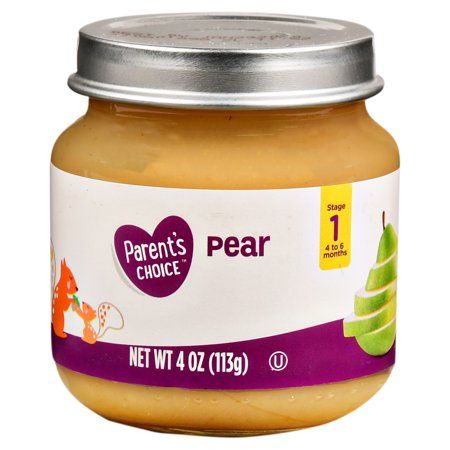 (25)
(25)
- Return or Refund Processing: 1-800-706-0556
Affected Products:
- Pears, Carrots & Peas; best before dates July 12, 2016 (batch code 51945335XX), and July 13, 2016 (batch code 51955335XX)
- Carrots, Apples & Mangoes; best before dates July 13, 2016 (batch code 51955335XX), and July 14, 2016 (batch code 51965335XX)
GoGo Squeez Applesauce Pouches
- Date Recalled: March 2016
- Company Name: Materne North America Corp.
- Reasons For Recall: Possible contamination from food product residues (26)
- Affected Products: Pouches with best before dates 12/4/15 to 3/4/17 and codes US01XXXX to US08XXXX.
- Return or Refund Processing: 1-844-275-5841 or visit voucher.
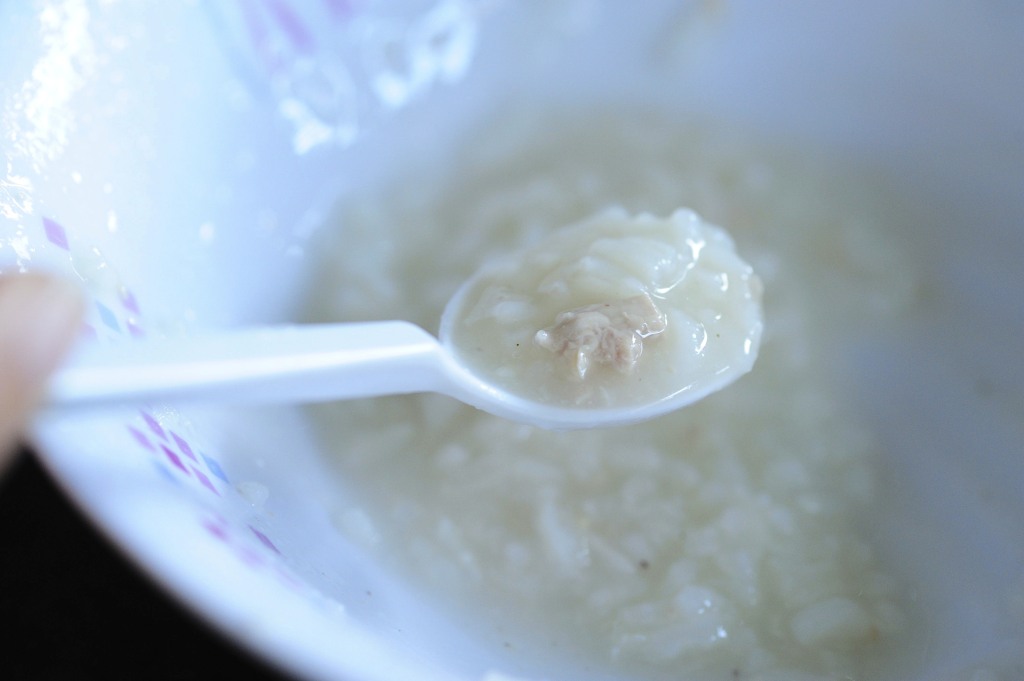 gogosqueez.com
gogosqueez.com
Baby Food Recall 2015
Beech-Nut CLASSICS Sweet Potato & Chicken
- Date Recalled: April 14, 2015
- Company Name: Beech-Nut Nutrition, Amsterdam, New York
- Reasons For Recall: Possible contamination with glass (27)
- Affected Products: Product numbers 12395750815 through 12395750821; product expiry date DEC 2016
- Return or Refund Processing: Return to store or call (518) 839-0300
Congressional Report On Toxic Baby Foods
The US Congress’ Subcommittee on Economic and Consumer Policy requested test results from these seven popular baby food companies following reports alleging high levels of toxic heavy metals: (2)
- Nurture, Inc. (HappyBABY)
- Beech-Nut Nutrition Company (Beech-Nut)
- Hain Celestial Group, Inc.
 (Earth’s Best Organic)
(Earth’s Best Organic) - Gerber
- Campbell Soup Company (Plum Organics)
- Walmart Inc. (Parent’s Choice)
- Sprout Foods, Inc. (Sprout Organic Foods)
According to the Congressional Report, Campbell, Walmart, and Sprout refused to cooperate.
So, the Subcommittee expressed concern that these baby food companies might be hiding higher levels of toxic elements in their products.
Nurture, Hain, Beech-Nut, and Gerber provided the House Subcommittee with their test results and internal product testing policies.
But the Subcommittee was alarmed after these baby food manufacturers reported test results of products containing very high levels of heavy metals:
- Inorganic arsenic
- Lead
- Cadmium
- Mercury
Their test results showed that the products had heavy metals several times the maximum allowable levels set by the FDA (U. S. Food and Drug Administration).
S. Food and Drug Administration).
FDA maximum limits in ppb (parts per billion) for bottled water: (28)
- 10 ppb inorganic arsenic
- 5 ppb lead
- 5 ppb cadmium
FDA maximum limits for infant rice cereal:
- 100 ppb inorganic arsenic
EPA (Environmental Protection Agency) maximum limit for drinking water (may also apply to food):
- 2 ppb mercury
Instead of complying with regulators, these baby food manufacturers created internal standards that allowed dangerously high levels of toxic heavy metals: (2)
- Nurture (arsenic): 115 ppb
- Beech-Nut (arsenic): 3,000 ppb
- Beech-Nut (cadmium): 3,000 ppb
- Beech-Nut (lead): 5,000 ppb
- Hain (arsenic): 200 ppb
- Hain (lead): 200 ppb
- Hain (cadmium): 200 ppb
Nurture, Inc.
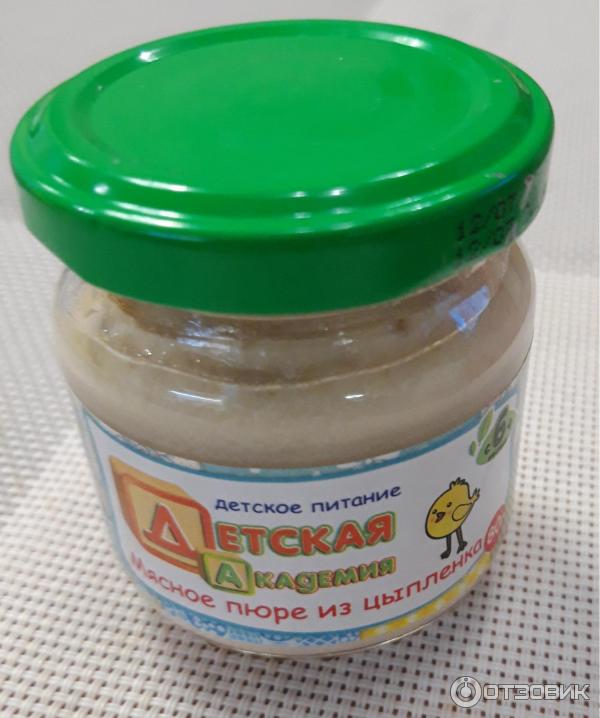 (HappyBABY)
(HappyBABY)Inorganic Arsenic:
- Up to 180 ppb for Apple & Broccoli Puffs
- Up to 160 for Banana & Pumpkin Puffs
- Up to 160 for Strawberry & Beet Puffs
- Up to 100 ppb for more than 25% of all Nurture products
Lead:
- Up to 641 ppb for Blueberry Purple Carrot
- Up to 560 ppb for Multi-Grain Cereal Canister
- Up to 10 ppb for nearly 20% of all Nurture vegetable and rice products
Cadmium:
- Up to 49 ppb in Multi-Grain Cereal Canister
- Up to 36 ppb in Strawberry Raspberry
- Up to 5 ppb in 65% of baby products
Mercury:
- Up to 10 ppb in Brown Rice Cereal Canister
- Up to 9.8 ppb in Banana Sweet Potato
Findings/Response:
- Nurture is the only baby food manufacturer that regularly tests finished products for heavy metals.
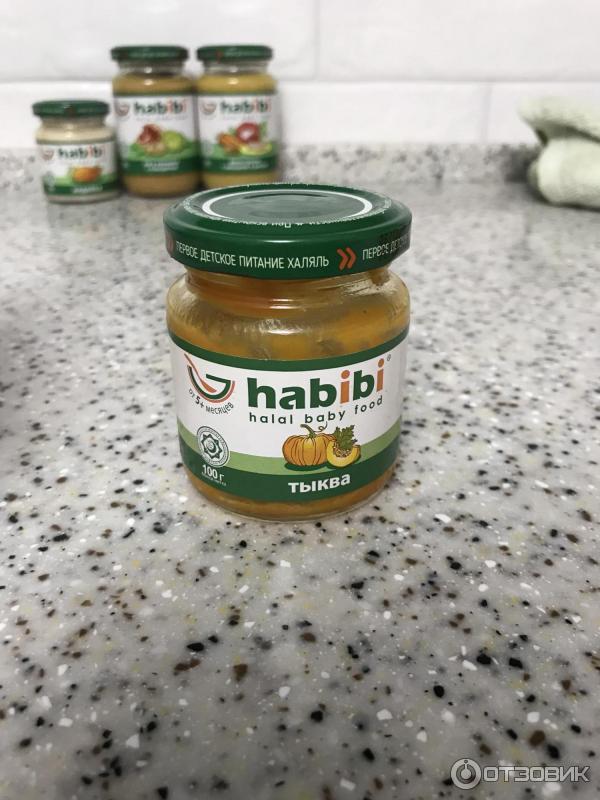 The others only test ingredients.
The others only test ingredients.
In response to the investigation, Nurture told the Subcommittee: (2)
“Our heavy metal testing is performed as part of our monitoring program and not as a condition of product release. All of the products that were tested were sold into commerce.”
Beech-Nut Nutrition Company (Beech-Nut)
Inorganic Arsenic:
- Up to 913.4 ppb in ingredients.
- Over 300 ppb in additives used in their products
Lead:
- Up to 886.9 ppb in ingredients.
Cadmium:
- Up to 344.55 ppb in its ingredients.
Mercury:
- No test for mercury.
Actions Taken:
- Beech-Nut set very high internal maximum levels for heavy metals. So, all their ingredients passed their internal standards but actually failed government regulations and federal standards.
(2)
Hain Celestial Group, Inc. (Earth’s Best Organic)
Inorganic Arsenic:
- Up to 129 ppb in baby products
- Up to 309 ppb in ingredients
- The company only tested their ingredients, not the finished products.
Lead:
- Up to 352 ppb in ingredients (vitamin premix)
Cadmium:
- Up to 260 ppb in ingredients
Mercury:
- No test for mercury
Actions Taken:
- Hain admits to the Subcommittee that they’re only using “theoretical calculations” on their test results. (2)
Gerber
Inorganic Arsenic:
- Up to 90 ppb in tested ingredients from 67 batches of rice flour
Lead:
- Up to 48 ppb in ingredients (sweet potatoes)
Cadmium:
- Over 5 ppb in 75% of carrot ingredients
- Up to 87 ppb in some carrot batches
- The company doesn’t test the other ingredients for this heavy metal.
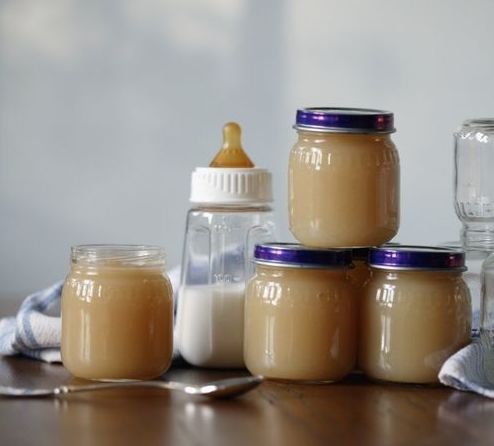
Mercury:
- No test for mercury.
Campbell Soup Company (Plum Organics)
Inorganic Arsenic:
- Up to 3.1 ppb
Lead:
- Up to 5.6 ppb
Cadmium:
- Up to 2.3 ppb
Mercury:
- Less than 0.142 ppb
Actions Taken:
- Results are for Just Sweet Potato Organic Baby Food.
- The results above are from the Healthy Babies Bright Futures report. (1)
- Campbell refused to submit actual test results or standards/criteria they used for the tests. Instead, the company provided a report that each product “meets criteria” to the Subcommittee.
Walmart Inc. (Parent’s Choice)
Inorganic Arsenic:
- Up to 56.
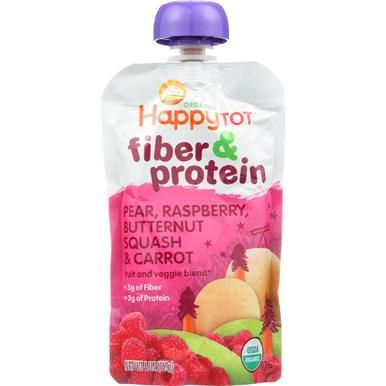 1 ppb in (A) Little Hearts Strawberry Yogurt Cereal Snack
1 ppb in (A) Little Hearts Strawberry Yogurt Cereal Snack - Up to 108 ppb in (B) Organic Strawberry Rice Rusks
Lead:
- Up to 5.2 ppb in (A)
- Up to 26.9 ppb in (B)
Cadmium:
- Up to 26.1 ppb in (A)
- Up to 2.4 ppb in (B)
Mercury:
- Up to 0.941 ppb in (A)
- Up to 2.05 ppb in (B)
Actions Taken:
- The above results are from the Healthy Babies Bright Futures report. (1)
- Walmart didn’t submit test results to the Subcommittee.
Sprout Foods, Inc. (Sprout Organic Foods)
Inorganic Arsenic:
- Up to 107 ppb
Lead:
- Up to 39.3 ppb
Cadmium:
- Up to 41.
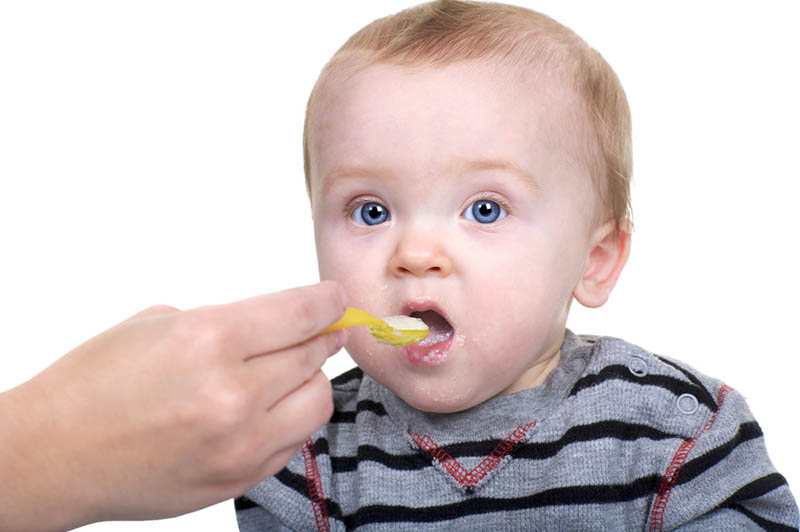 5 ppb
5 ppb
Mercury:
- Up to 1.31 ppb
Actions Taken:
- Results are for Organic Quinoa Puffs Baby Cereal Snack – Apple Kale.
- The results listed are from the Healthy Babies Bright Futures report. (1)
- Sprout never responded to the Subcommittee.
What Parents Should Know
- Healthy Babies Bright Futures and other organizations call for baby food manufacturers to set a goal of zero levels of inorganic arsenic in all baby foods.
- Consumer Reports suggest changing maximum inorganic arsenic levels to 3 ppb in baby foods. That’s lower than the current FDA and EPA limit of 10 ppb.
- Consumer Reports also wants to lower cadmium limits to 1 ppb in fruit juices.
What Parents Can Do
The AAP (American Academy of Pediatrics) advises offering your baby a variety of foods to reduce the levels of lead and other toxic heavy metals in their diet.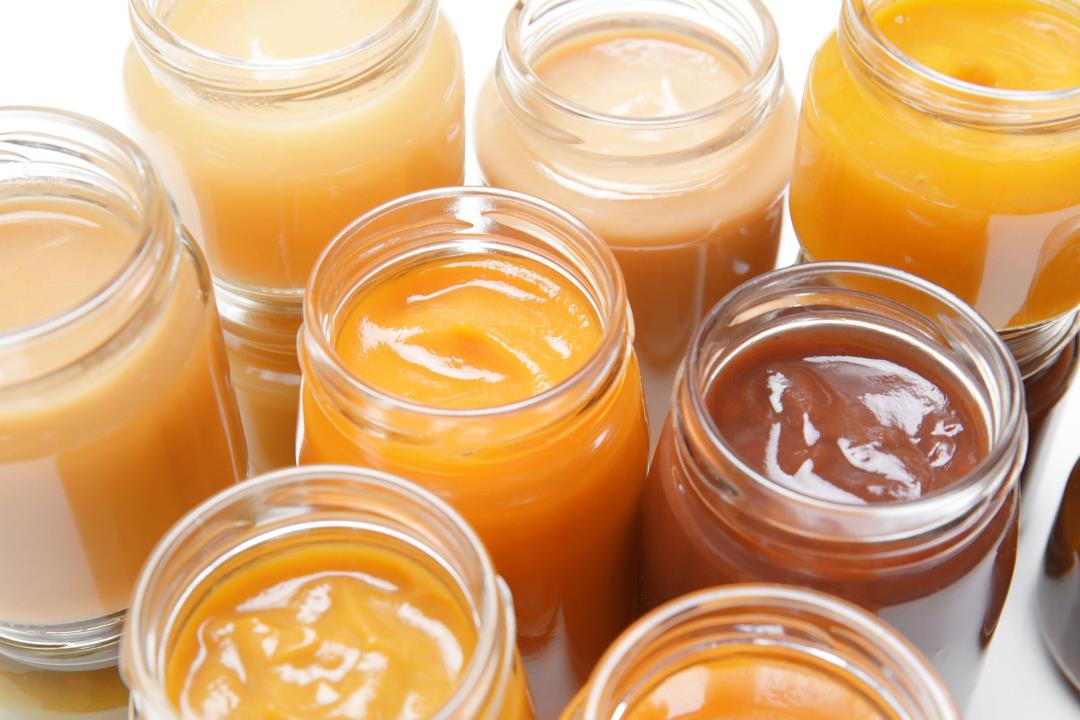 (30)
(30)
Healthy Babies Bright Futures and Consumer Reports recommend the following healthier food options for young children: (1)
High-Risk Food: Snacks (including puffs) made from rice flour
Heavy Metals: Arsenic, lead, and cadmium
Healthier Alternatives:
- Rice-free packaged snacks
- Multi-grain snacks
- Apples
- Applesauce (unsweetened)
- Bananas
- Barley with diced vegetables
- Beans
- Cheese
- Grapes
- Hard-boiled eggs
- Peaches
- Yogurt
High-Risk Food: Rice rusks and teething biscuits
Heavy Metals: Arsenic, lead, and cadmium
Healthier Alternatives:
- Frozen banana
- Peeled and chilled cucumber
High-Risk Food: Single grain rice cereal
Heavy Metals: Arsenic
Healthier Alternatives:
- Non-rice and multi-grain cereals
- Oatmeal
- Corn
- Barley
- Quinoa
High-Risk Food: Fruit juices from apple, pear, grape, and others
Heavy Metals: Lead and arsenic
Healthier Alternatives:
- Tap water
- Whole or pureed fruits (applesauce)
High-Risk Food: Carrots and sweet potatoes
Heavy metals: Lead and cadmium
Healthier Alternatives:
- These vegetables are important in your baby’s diet.
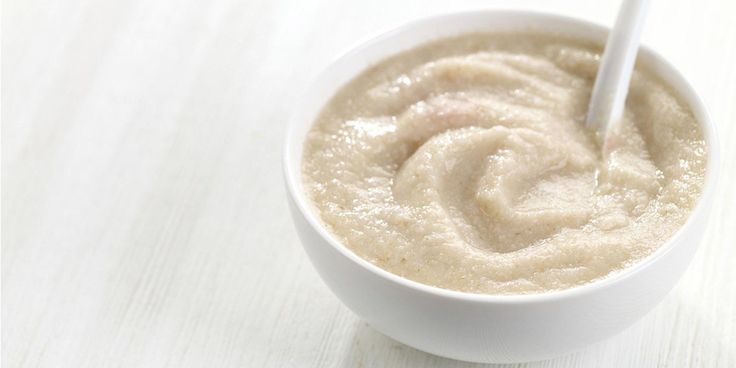
- They’re rich in vitamin A and other nutrients.
- Limit your baby’s intake of these vegetables.
- Serve these vegetables with others so they won’t be taken in excess.
Baby Food Safety Act Of 2021
US PIRG (Public Interest Research Group) and Consumer Reports call on Congress to pass the Baby Food Safety Act of 2021. (29)
This law will require the FDA to adopt stricter limits for baby foods.
It will also require baby food manufacturers to test and disclose test results to parents and regulators.
Healthier Baby Food Brands
The following baby food brands are 100% safe, organic, and non-toxic:
- Once Upon A Farm
- Serenity Kids
- Little Journey Organics
- Yumi (subscription-based)
- Little Spoon (subscription-based)
REFERENCES
(1) http://www.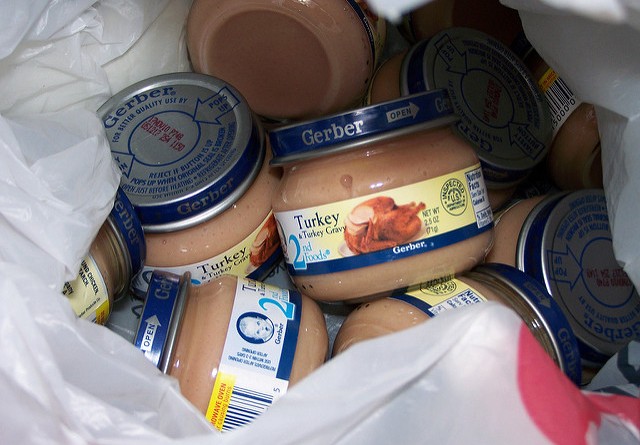 healthybabyfood.org/sites/healthybabyfoods.org/files/2019-10/BabyFoodReport_FULLREPORT_ENGLISH_R5b.pdf
healthybabyfood.org/sites/healthybabyfoods.org/files/2019-10/BabyFoodReport_FULLREPORT_ENGLISH_R5b.pdf
(2) https://oversight.house.gov/sites/democrats.oversight.house.gov/files/2021-02-04%20ECP%20Baby%20Food%20Staff%20Report.pdf
(3) https://pubmed.ncbi.nlm.nih.gov/23570911/
(4) https://www.ncbi.nlm.nih.gov/pmc/articles/PMC4418502/
(5) https://www.cbsnews.com/news/baby-formula-shortage-2022-states/
(6) https://www.cdc.gov/breastfeeding/pdf/2020-Breastfeeding-Report-Card-H.pdf
(7) https://texaswic.org/about-wic/special-wic-food-updates
(8) https://dhhr.wv.gov/News/2022/Pages/WIC-Introduces-Additional-Flexibilities-Amid-Powdered-Infant-Formula-Recall.aspx
(9) https://www.fda.gov/news-events/press-announcements/fda-warns-consumers-not-use-certain-powdered-infant-formula-produced-abbott-nutritions-facility
(10) https://www.similacrecall.com/us/en/home.html
(11) https://www.fda.gov/safety/recalls-market-withdrawals-safety-alerts/maple-island-inc-issues-voluntary-recall-three-lots-parents-choice-rice-baby-cereal
(12) https://www. fda.gov/safety/recalls-market-withdrawals-safety-alerts/beech-nut-nutrition-company-issues-voluntary-recall-one-lot-beech-nut-single-grain-rice-cereal-and
fda.gov/safety/recalls-market-withdrawals-safety-alerts/beech-nut-nutrition-company-issues-voluntary-recall-one-lot-beech-nut-single-grain-rice-cereal-and
(13) https://www.goodmorningamerica.com/wellness/story/beech-nut-stop-selling-specific-baby-rice-cereal-78196121
(14) https://www.fda.gov/safety/recalls-market-withdrawals-safety-alerts/primary-colors-design-corp-issues-allergy-alert-undeclared-egg-peppa-pig-chocolate-chip-cookies
(15) https://www.food.gov.uk/news-alerts/alert/fsa-prin-08-2020
(16) https://www.food.gov.uk/news-alerts/alert/fsa-prin-03-2020
(17) https://www.fda.gov/safety/recalls-market-withdrawals-safety-alerts/mountain-mels-essential-goods-llc-recalls-milk-ladys-herbal-tea-blend-peaceful-baby-herbal-tea-blend
(18) https://inspection.canada.ca/food-recall-warnings-and-allergy-alerts/2019-08-16/eng/1566012117302/1566012119453?print=1#r08
(19) https://www.food.gov.uk/news-alerts/alert/fsa-prin-20-2019
(20) https://inspection.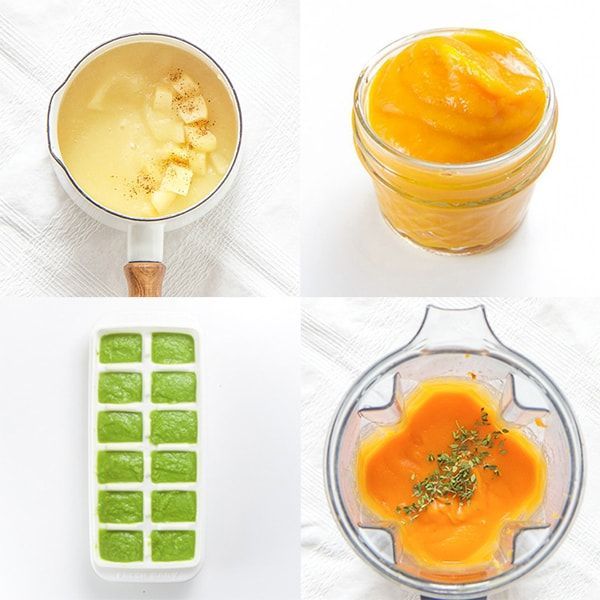 canada.ca/food-recall-warnings-and-allergy-alerts/2018-05-26/eng/1527371146055/1527371148679
canada.ca/food-recall-warnings-and-allergy-alerts/2018-05-26/eng/1527371146055/1527371148679
(21) https://www.fsis.usda.gov/recalls-alerts/overhill-farms-inc.-recalls-chicken-products-due-possible-foreign-matter
(22) https://www.fda.gov/safety/recalls-market-withdrawals-safety-alerts/gerber-issues-allergy-alert-clarify-egg-labeling-cheese-ravioli-pasta-pick-upsr
(23) https://www.fda.gov/safety/recalls-market-withdrawals-safety-alerts/fda-posting-canadian-food-inspection-agencys-recall-notice-alert-us-consumers-who-may-have-purchased
(24) https://www.heb.com/static-page/article-template/heb-baby-food-recall-nov-2016
(25) http://news.gerber.com/news/gerber-is-voluntarily-recalling-two-batches-of-gerberR-organic-2nd-foodsR-pouches
(26) https://www.gogosqueez.com/recall/
(27) https://www.fsis.usda.gov/recalls-alerts/beech-nut-nutrition-recalls-baby-food-product-due-possible-foreign-matter
(28) https://www.fda.gov/food/metals-and-your-food/arsenic-food-and-dietary-supplements
(29) https://www.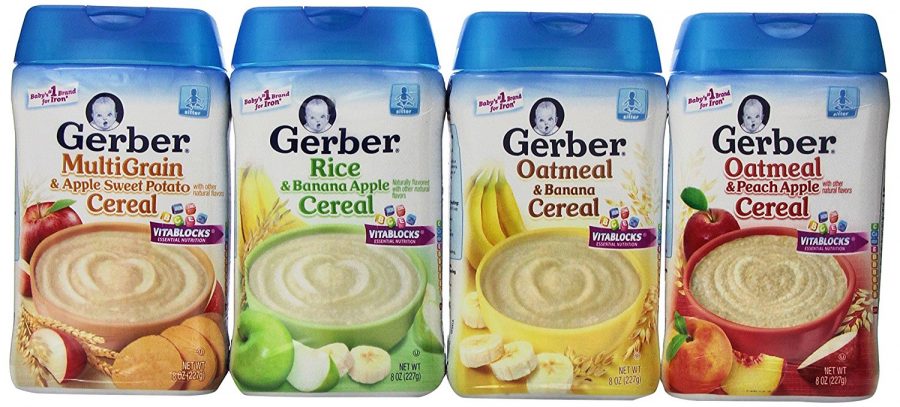 usatoday.com/story/money/shopping/2021/06/09/beech-nut–baby-food-recall-2021-rice-cereal-arsenic/7621243002/
usatoday.com/story/money/shopping/2021/06/09/beech-nut–baby-food-recall-2021-rice-cereal-arsenic/7621243002/
(30) https://www.aappublications.org/news/2021/05/01/parentplus-babyfoodmetal050121
Closer to Zero: Action Plan for Baby Foods
About | Approach | Action Items & Proposed Timeline | On-Going Work | Announcements
Featured
FDA and Federal Partners Launch Study on the Role of Seafood Consumption in Child Growth and Development
Learn more about the National Academies of Sciences, Engineering, and Medicine study that is designed to provide the most up-to-date understanding of the science of seafood consumption and child growth and development that supports the goals of our Closer to Zero Action Plan. It will also help inform whether updates are needed for the current Advice about Eating Fish for children and those who might become or are pregnant or breastfeeding.
FDA Updates Interim Reference Level for Lead
To help ensure that FDA’s guidance to industry on lead in food is based on the latest science, FDA researchers have lowered the Interim Reference Level. Learn More.
Learn More.
Stakeholder Webinar on Lead in Juice
Watch the stakeholder webinar held on Tuesday, June 14, 2022 where the agency's draft guidance on action levels for lead in juice was discussed.
Guidance
The FDA has issued draft guidance to industry on action levels for lead in single-strength juices and juice blends. To learn more about the action levels and how to submit public comments, please see FDA Issues Draft Guidance to Industry on Action Levels for Lead in Juice.
About the Action Plan
The U.S. Food and Drug Administration’s (FDA) plan, Closer to Zero, identifies actions the agency will take to reduce exposure to arsenic, lead, cadmium, and mercury from foods eaten by babies and young children—to as low as possible. We have prioritized babies and young children because their smaller body sizes and metabolism make them more vulnerable to the harmful effects of these contaminants.
Exposure to arsenic, lead, cadmium, and mercury, from foods depends on the levels of the elements in the food and the amount consumed.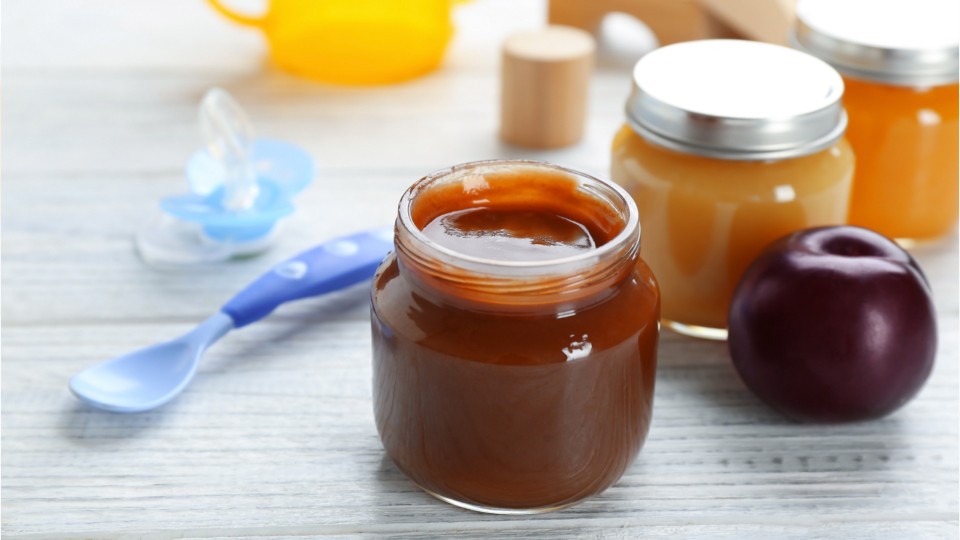 The levels of these elements in foods depend on many factors, including:
The levels of these elements in foods depend on many factors, including:
- the levels of these elements in the air, water, and soil used to grow the crops, which vary depending on factors such as natural geographical differences and past or current contamination,
- the type of food crop and how much “uptake” there is of specific elements from the environment, and
- industrial, manufacturing, and agricultural processes.
Our work, combined with that of our stakeholders, has led to meaningful reductions in exposure to toxic elements. The FDA’s action plan builds on this progress and outlines a science-based, iterative approach for achieving continual improvements over time. Further reductions in the levels of arsenic, lead, cadmium, and mercury in foods will be made by:
- advancing the FDA’s research on and evaluating changes in dietary exposures to these elements,
- setting action levels, with input from stakeholders,
- encouraging adoption of best practices by industry to lower levels of toxic elements in agricultural commodities and products,
- increasing targeted compliance and enforcement activities, and
- monitoring progress of levels over time.
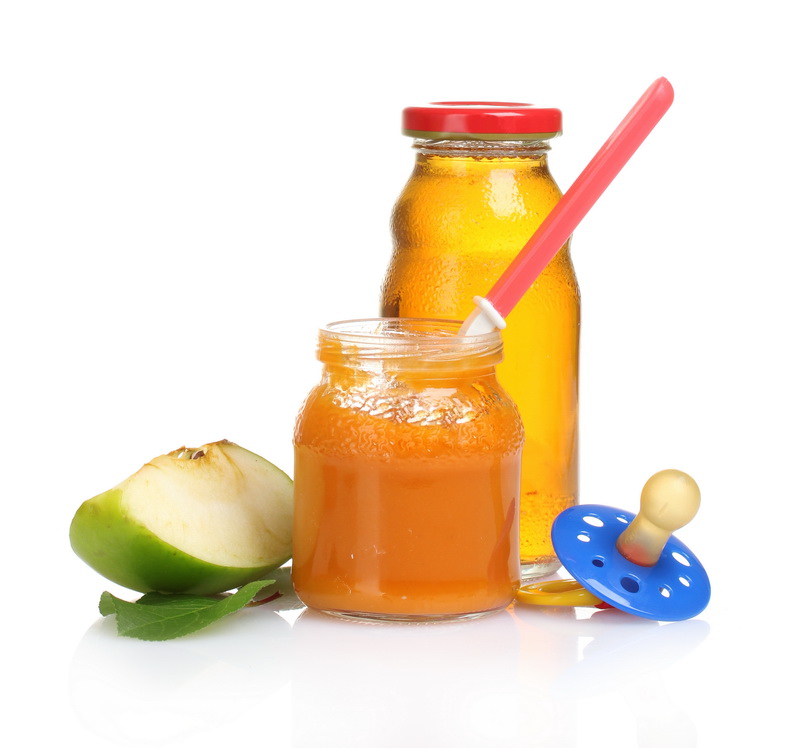
Action levels are a level of contamination at which a food may be regarded as adulterated within the meaning of section 402(a)(1) of the Federal Food, Drug, and Cosmetic Act. The FDA considers action levels, in addition to other factors and scientific evidence, when considering whether to bring enforcement action in a particular case.
Reducing levels of toxic elements in foods is complicated and multifaceted. It is crucial to ensure that measures taken to limit arsenic, lead, cadmium, and mercury in foods does not have unintended consequences—like eliminating from the marketplace foods that have significant nutritional benefits or reducing the presence of one element while increasing another.
The FDA is committed to a science-driven, transparent, and inclusive process that will include active stakeholder engagement and public sharing of data and information. This iterative plan will be updated as new data, information, and resources become available.
Understanding the FDA’s Approach
To make continual improvements, the FDA’s action plan follows a four-stage iterative approach that includes research, regulatory, and outreach efforts.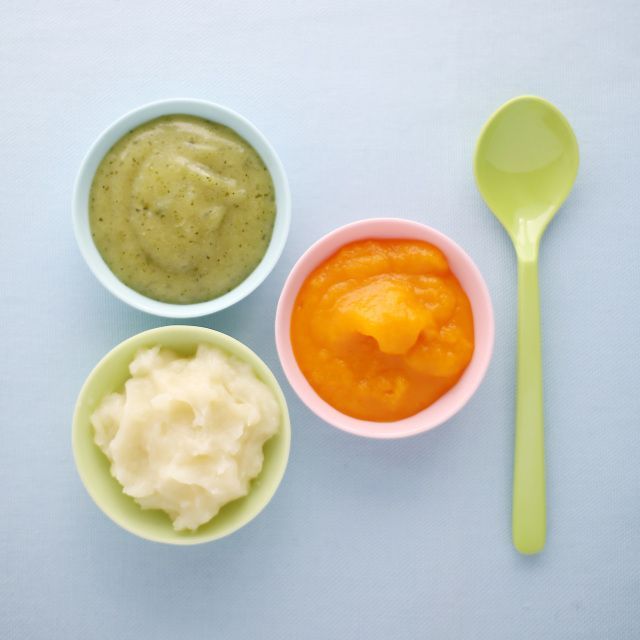
The Four Stages of the FDA’s Approach:
Evaluate the scientific basis for action levels. The cycle of continual improvement starts with the FDA evaluating existing data from routine testing of the food supply, research and data on chemical analytical methods, toxicological assays, exposure and risk assessments, and other relevant scientific information. Through a process that may include engagement with stakeholders, advisory committees, public workshops, and consultation with scientific experts, federal agency partners and other stakeholders, the agency will establish interim reference levels (IRLs) for certain toxic elements as appropriate. An IRL is a measure of exposure from food that the FDA may use to determine if the amount of exposure to an individual element across foods could result in a specific health impact.
Propose action levels. The IRLs may be among the key factors that inform the development of the FDA’s proposed action levels for certain toxic elements in categories of baby foods (e.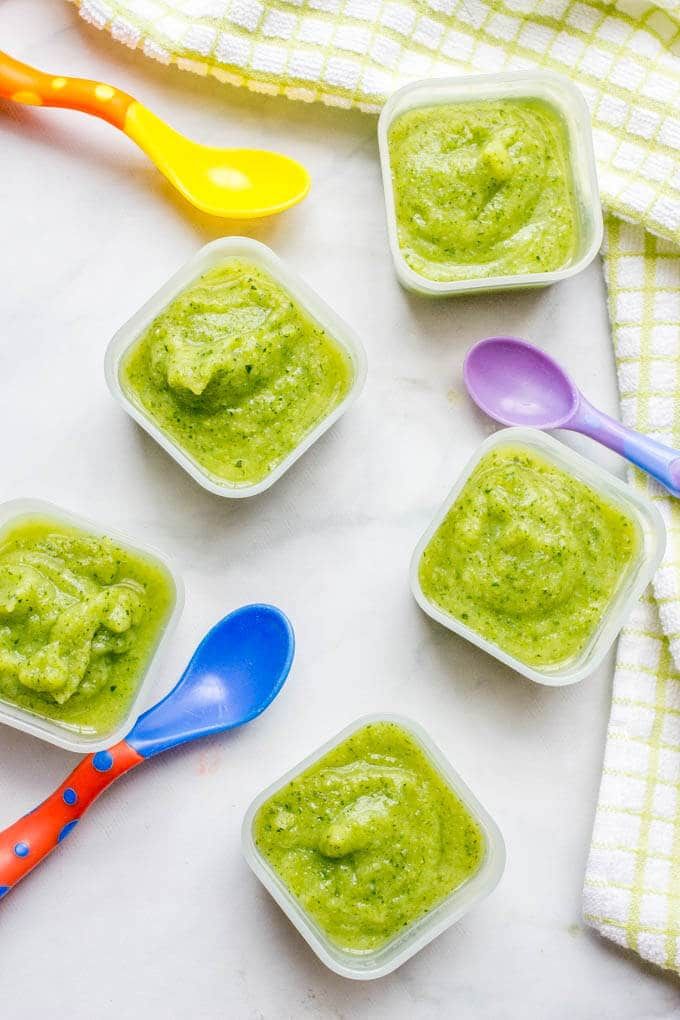 g., cereals, infant formula, pureed fruits and vegetables) and other foods commonly eaten by babies and young children.
g., cereals, infant formula, pureed fruits and vegetables) and other foods commonly eaten by babies and young children.
Consult with stakeholders on proposed action levels, including the achievability and feasibility of action levels. For each individual element in every identified category of food, the FDA will gather data and other information through a process of consultation which could include workshops, scientific meetings, and collaboration with federal partners to assess, among other things, the achievability and feasibility of the proposed action levels and the timeframes for reaching them.
Finalize action levels. The FDA will use the information gathered from stakeholders, updated scientific research, and routine monitoring of data to make any needed adjustments and finalize action levels.
The FDA's Approach in Action
Once the FDA has published final action levels, the agency will establish a timeframe for assessing industry’s progress toward meeting the action levels and recommence the cycle to determine if the scientific data support efforts to further adjust the action levels.
The availability of data and additional research needs for arsenic, lead, cadmium, and mercury are different. Therefore, because of currently available data, we will start with proposing action levels for lead while we evaluate data for the other toxic elements. We will then progress through the cycle for each element as we gather more data and information across various categories of food consumed by babies and young children.
The FDA will support the cycle of continual improvement with ongoing activities related to monitoring levels in foods; research on chemical methods, toxicological impacts, exposures, and risk communication; and routine compliance and enforcement efforts. The FDA will evaluate information as it becomes available to determine whether any foods are adulterated or otherwise violative and take action as appropriate. The FDA intends to make information about our monitoring, research, and enforcement actions publicly available. The timeline and deliverables included in the plan will be updated periodically as new data, information, and resources become available.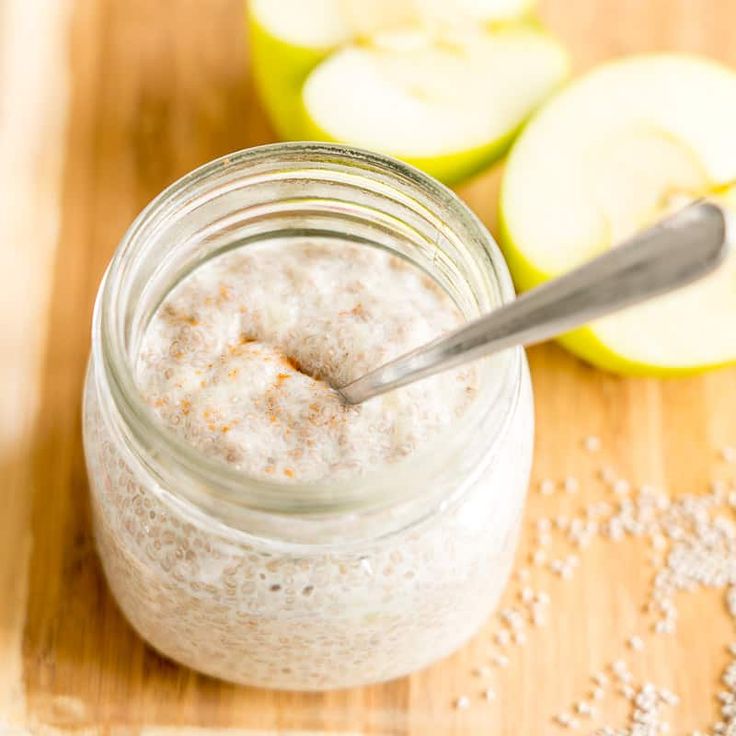
Action Items and Proposed Timeline
Phase 1: April 2021 – April 2022
| Stage in the Cycle of Improvement | Toxic Element | Action |
|---|---|---|
| Evaluate | Arsenic | Gather data through a process of consultation, which could include workshops, scientific meetings, and collaboration with federal partners to work toward establishing an interim reference level |
| Propose | Lead | Draft action levels for categories of foods consumed by babies and young children |
| Consult | Lead | Engage with stakeholders to assess, among other things, feasibility and best practices |
| Ongoing Monitoring, Research, and Compliance | All | Provide resources to industry on best practices for reducing or preventing lead contamination Complete sampling assignment for baby foods |
| Key Accomplishments | All | Provided draft action levels for lead in juice. Made significant progress in evaluating the science for arsenic and the dose-response of cadmium to establish interim reference levels. Sampled baby foods for research, monitoring, and compliance purposes. Collaborated with USDA, USDA-WIC, NIH, consumer safety stakeholders, and industry, including:
|
Phase 2: April 2022 – April 2024
| Stage in the Cycle of Improvement | Toxic Element | Action |
|---|---|---|
| Evaluate | Cadmium Mercury | Gather data through a process of consultation which could include workshops, scientific meetings, and collaboration with federal partners to work toward establishing an interim reference level |
| Propose | Arsenic | Draft action levels for categories of foods consumed by babies and young children |
| Consult | Arsenic | Engage with stakeholders to assess, among other things, feasibility and best practices |
| Finalize | Lead | Finalize action levels for lead in categories of foods consumed by babies and young children |
| Ongoing Monitoring, Research, and Compliance | All | Issue guidance chapter on chemical hazards in the Draft Guidance for Industry on Hazard Analysis and Risk-Based Preventive Controls for Human Food Publish results from sampling assignment for baby foods Publish Total Diet Study results (to occur biennially) Publish exposure assessments for children to toxic elements (to occur biennially) |
Phase 3: April 2024 – beyond
| Stage in the Cycle of Improvement | Toxic Element | Action |
|---|---|---|
| Evaluate | Lead | Review new scientific data, assess progress on reducing lead in foods consumed by babies and young children and feasibility of attaining even lower levels |
| Propose | Cadmium Mercury | Draft action levels for categories of foods consumed by babies and young children |
| Consult | Cadmium Mercury | Engage with stakeholders to assess, among other things, feasibility and best practices |
| Finalize | Arsenic | Finalize action levels for arsenic in categories of foods consumed by babies and young children |
| Ongoing Monitoring, Research, and Compliance | All | Complete additional baby food sampling assignments Publish results from sampling assignment for baby foods Publish Total Diet Study results (to occur biennially) Publish exposure assessments for children to toxic elements (to occur biennially) |
As action levels are finalized, we will continue the cycle of continual improvement, addressing arsenic, lead, cadmium, and mercury in its turn, to evaluate whether downward adjustments of interim reference levels should be made; proposing new action levels, as appropriate; consulting with stakeholders on feasibility, achievability, and other issues; and adjusting (as needed) and finalizing action levels.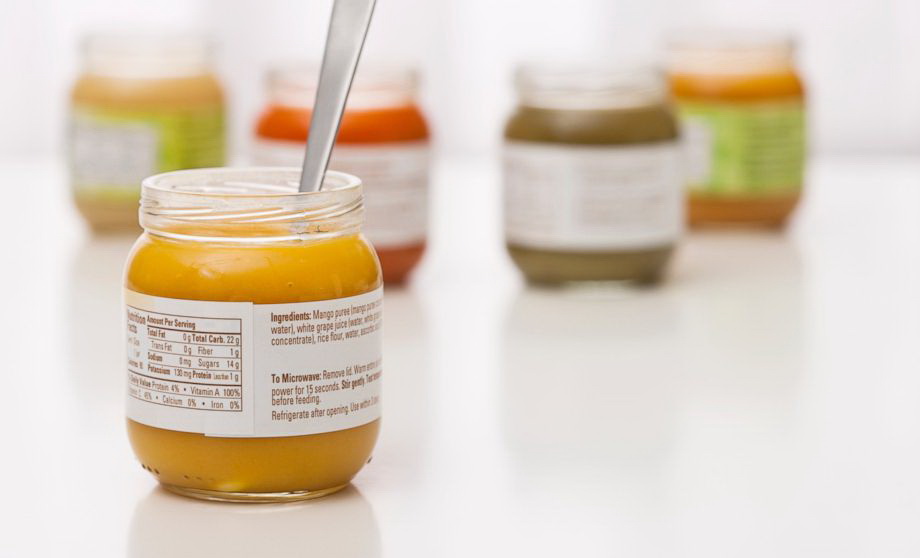
Ongoing Work on Toxic Elements
Trends in Exposure to Toxic Elements from Foods for Babies and Young Children (PDF: 1.7MB)
The FDA’s testing of toxic elements in foods has shown that over time there have been significant reductions in the levels of these elements in foods and the Closer to Zero action plan will help further advance progress in this area.
In addition to the actions in the proposed timeline, we will continue:
- Developing and validating analytical methods.
- Toxicological research on impacts of toxic elements on development in children.
- Developing new dose-response models to consider the probability of other adverse health effects in different sub-populations, including infants and young children.
- Collaborating with the U.S. Department of Agriculture on research on agronomic techniques that may mitigate uptake of toxic elements in agricultural commodities.
- Collaborating with the National Institutes of Health and the Centers for Disease Control and Prevention to better understand impacts of toxic elements on development and the role of nutrition for mitigating those impacts.

- Evaluating potential impact of new technologies, interventions, or mitigation controls to reduce exposure and resulting risk to consumer health.
- Reevaluating risk assessments based on declining levels of toxic elements in foods.
The FDA’s regulatory actions, along with research and collaboration with all of our stakeholders – industry, advocacy, policy makers, academia, and consumers – will result in significant reductions in exposures to arsenic, lead, mercury, and cadmium, among children and the general population and have lasting public health impact.
Announcements
FDA to Hold Webinar on the Draft Guidance for Industry on Action Levels for Lead in Juice (June 20, 2022)
FDA Issues Draft Guidance to Industry on Action Levels for Lead in Juice (April 27, 2022)
FDA Announces First Closer to Zero Action Plan Public Meeting (October 8, 2021)
FDA Statement: FDA Releases Action Plan for Reducing Exposure to Toxic Elements from Foods for Babies, Young Children (April 8, 2021)
FDA Shares Action Plan for Reducing Exposure to Toxic Elements from Foods for Babies and Young Children (April 8, 2021)
FDA Letter to Industry on Chemical Hazards, including Toxic Elements, in Food and Update on FDA Efforts to Increase the Safety of Foods for Babies and Young Children (March 5, 2021)
FDA Statement: FDA Announces New Actions Aimed at Further Reducing Toxic Elements in Food for Babies, Young Children (March 5, 2021)
FDA Response to Questions About Levels of Toxic Elements in Baby Food, Following Congressional Report (February 16, 2021)
Heavy metals in baby food: how to feed babies safely?
Lead, mercury, cadmium, arsenic and other toxic substances have been found in some US brands of baby food.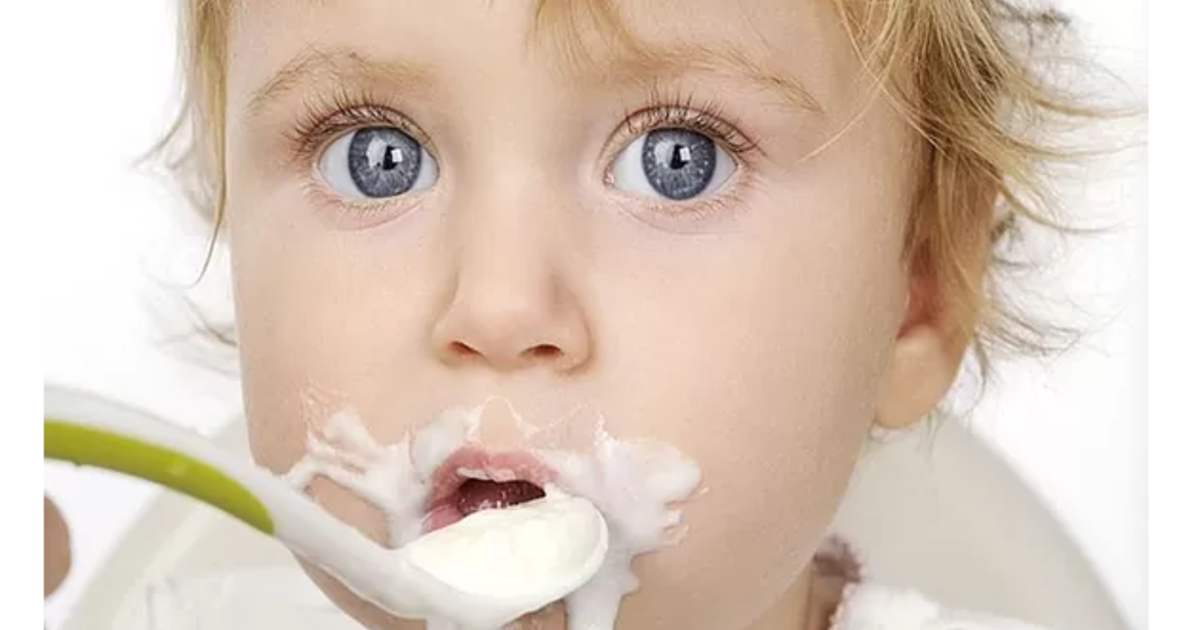 How they ended up there, what consequences the use of such products can lead to, and how safe baby food is on the shelves of Russian stores, Elena Miroshnik, head of the pediatric department No.
How they ended up there, what consequences the use of such products can lead to, and how safe baby food is on the shelves of Russian stores, Elena Miroshnik, head of the pediatric department No.
- Have you ever heard mothers complain about the products of these manufacturers and the quality of ready-made baby food?
Elena Miroshnik: Indeed, according to the report of the House of Representatives, hazardous substances were found in some brands. I am constantly faced with the question of what baby food is best for babies, which brands can be trusted, and whether the food is safe. What is the best way to feed a child - food that is packaged in jars, or what is cooked with your own hands.
- No complaints so far?
Elena Miroshnik: Complaints related to the content of heavy metals can only be received if the parents took the can of baby food to the laboratory and the analysis was carried out there. The content of these substances does not affect the taste in any way.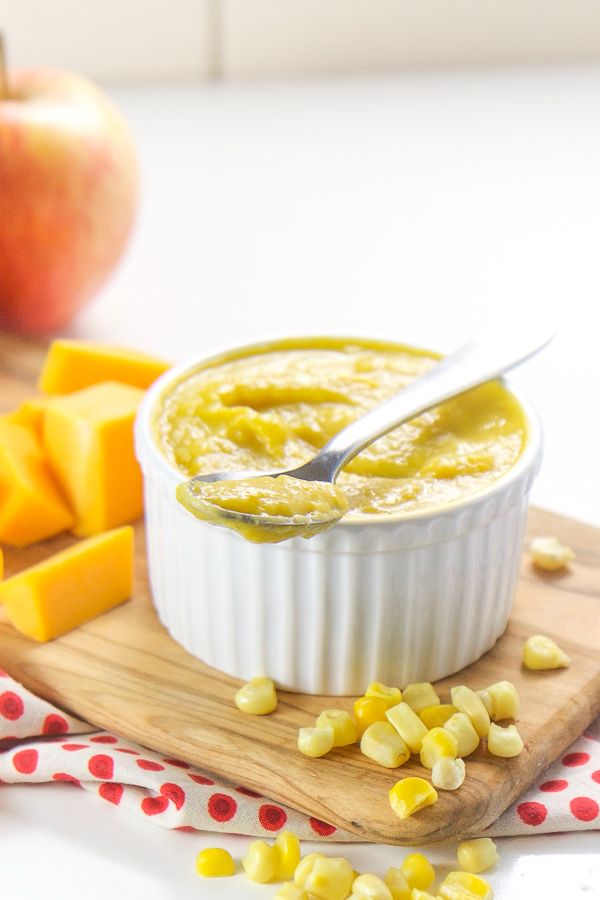
- The content of arsenic in some products is exceeded by 91 times, and cadmium and lead by 177 times. Is this even possible? What needs to be done with the products to get such numbers?
Elena Miroshnik: Hypothetically, this is possible. As a rule, this may be due to contamination of the soil in which certain products were grown. Most experts are inclined to think that such a situation occurred in the United States.
- Isn't the fruit used in baby food checked before preparation?
Elena Miroshnik: Normally, there must be strict quality control - all this goes through multi-level checks: laboratory control, organoleptic properties of the product are evaluated. At what stage the failure occurred, it is difficult to say. But it must be mentioned that in 2019In the same year, a report from one of the organizations was also published, according to which the authors randomly took banks in supermarkets. 95% of the samples were found to be of poor quality.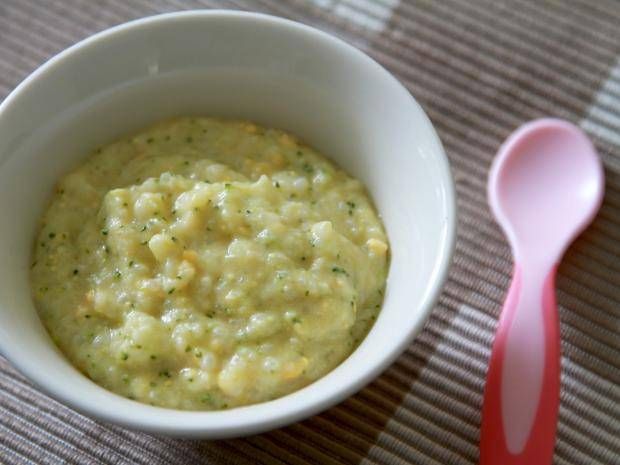 At some stages, failures occur. It is very difficult to say what stage it is - growing products, cooking. We are not immune from this, both in baby food and in any other.
At some stages, failures occur. It is very difficult to say what stage it is - growing products, cooking. We are not immune from this, both in baby food and in any other.
- Do imported and Russian baby food differ in quality?
Elena Miroshnik: The choice always remains with the parents, the reasons may be different: either people are simply sure that imported food is much better than Russian, someone is guided by the pricing policy. We, pediatricians, try never to give hard recommendations, not to impose our opinion. I believe that there are high-quality Russian-made products, and there are wonderful high-quality imported products.
- How could heavy metals affect children's health?
Elena Miroshnik: Multiple excess of heavy metals in food is indeed very dangerous, especially for children under two years old. There can be very serious consequences, usually neurological disorders. There are reports that the gradual accumulation of heavy metals can lead to various pathologies up to autism, a decrease in the level of intelligence.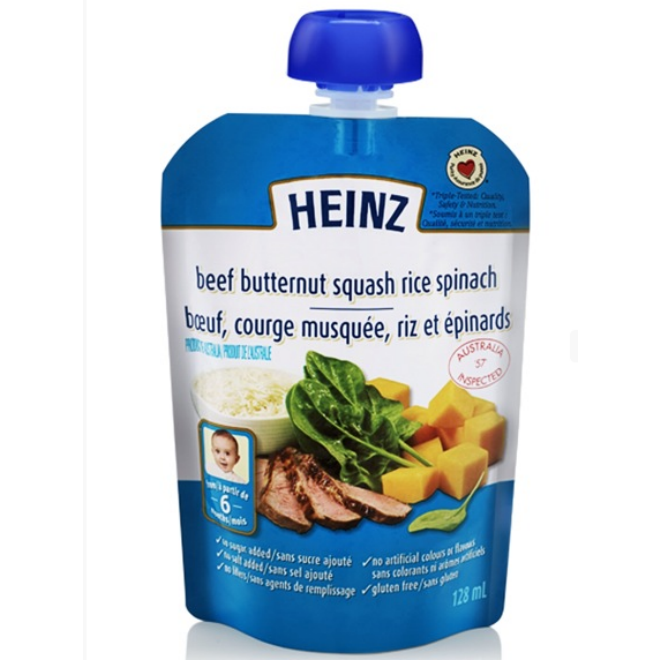 They can also lead to oncological diseases, a decrease in the level of immunity, and allergies.
They can also lead to oncological diseases, a decrease in the level of immunity, and allergies.
- Does the reaction to a high concentration of such substances appear immediately?
Elena Miroshnik: As a rule, such substances are dangerous because their excess is not immediately noticeable. This does not affect the properties of the product in any way, but they have a cumulative effect and have an unpleasant effect on health: the immune system, digestive organs, allergization.
- How often can a child be given food that is sold in a store in the Baby Food section?
Elena Miroshnik: Everything is also individual. As a rule, it depends on the preferences in the family. As part of everyday life, mothers often use ready-made products - it's convenient, fast. Is it helpful? Probably not always, although parents often turn to them about food allergies, food intolerances, and we understand that this is not entirely related to the product, but to some substances that this product is processed with.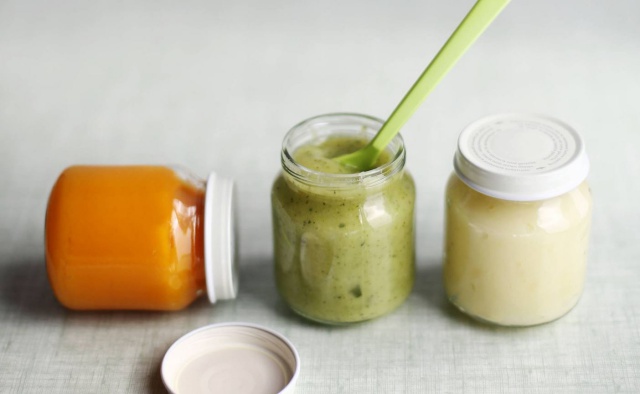
I always recommend that my patients look for trusted places to buy food for all family members.
- Is it possible to protect a child from dangerous substances from food in modern conditions?
Elena Miroshnik: In modern conditions, this is a difficult task, from the category of impossible, only if you constantly use the services of laboratories. Many people buy analyzers that measure the level of pesticides - all this makes some sense, but the main recommendation for parents is to look for proven places, buy products in stores, supermarkets, be sure to look at the expiration date. This does not always protect the consumer from buying low-quality goods, but it gives at least some kind of guarantee.
When it comes to preparing food for your child, where the food was bought is of great importance. Were these spontaneous markets or proven stores that have official status, documents and certain quality standards.
Homemade baby food as toxic as store bought
There are no "any chemicals" in your own kitchen, but the same "all kinds of chemicals" are contained in the products themselves.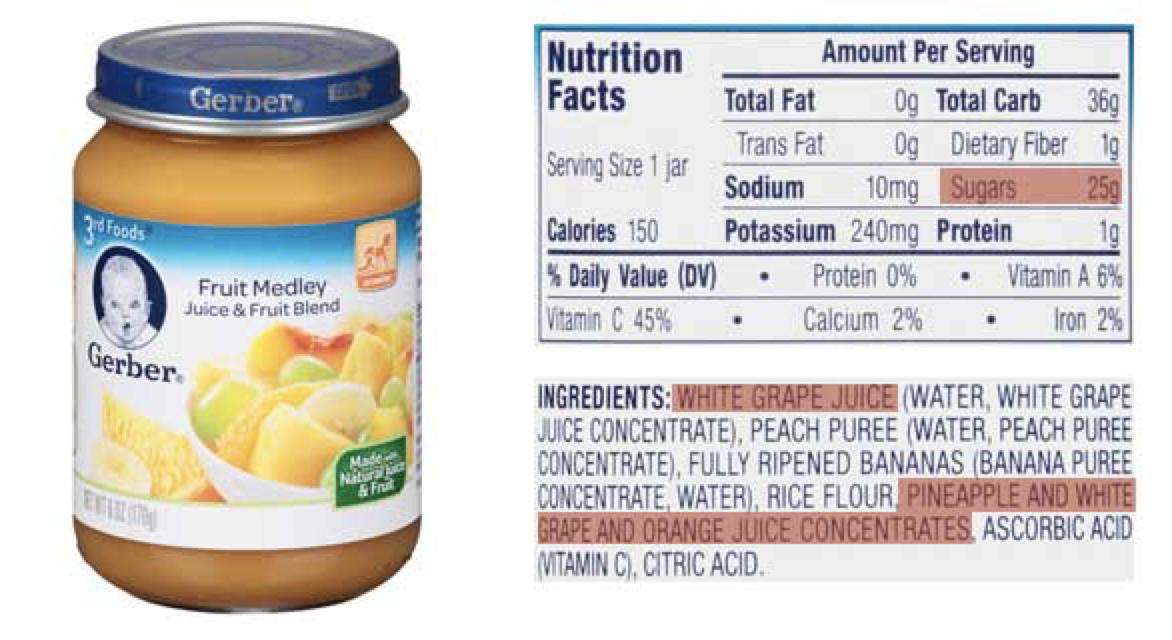
Homemade baby food made from commercial products will not reduce the amount of toxic heavy metals in food. American researchers came to this conclusion.
See also: Unhealthy food: six unhealthy foods in your kitchen.
“We found no evidence that homemade baby food made with store-bought foods is better than store-bought baby food when it comes to heavy metal contamination,” said study co-author Jane Houlihan.
The work was carried out by an alliance of non-profit organizations, scientists and donors. The researchers tested 288 products purchased from stores and farmers' markets across the United States. They bought cereals, fruits and vegetables.
Products tested for lead, arsenic, mercury and cadmium. These heavy metals are among the World Health Organization's top 10 chemicals of concern for children's health. Exposure to toxic metals can be harmful to the developing brain. This has been associated with problems in learning, cognition, and behavior,” reports the American Academy of Pediatrics.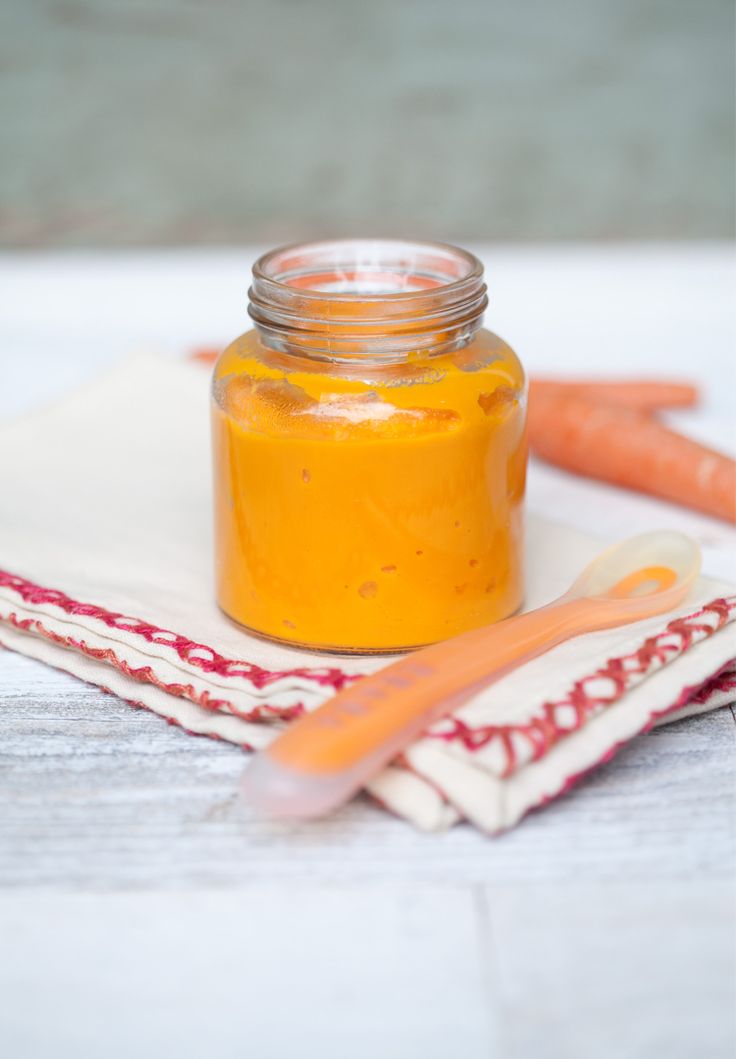
The researchers also looked at 7,000 additional food tests from the US Food and Drug Administration.
All homemade baby food contains heavy metals
The results showed that 94% of baby food made from purchased raw foods contained one or more heavy metals. Lead has been found in 90% of purchased baby food and 80% of homemade food. At the same time, there is no safe level of lead.
Arsenic was found in 68% of store-bought baby food. And in 72% of food prepared at home. Cadmium has been found in 65% of purchased baby food and 60% of homemade food. Mercury was found in 7% of store-bought food and 10% of homemade food.
The new report is a continuation of the 2019 study. At that time, Healthy Babies, Bright Futures tested 168 products purchased from major baby food manufacturers. This analysis showed that 95% of store-bought baby food contained lead, 73% arsenic, 75% cadmium, and 32% mercury.
A quarter of the products tested last year contained all four heavy metals.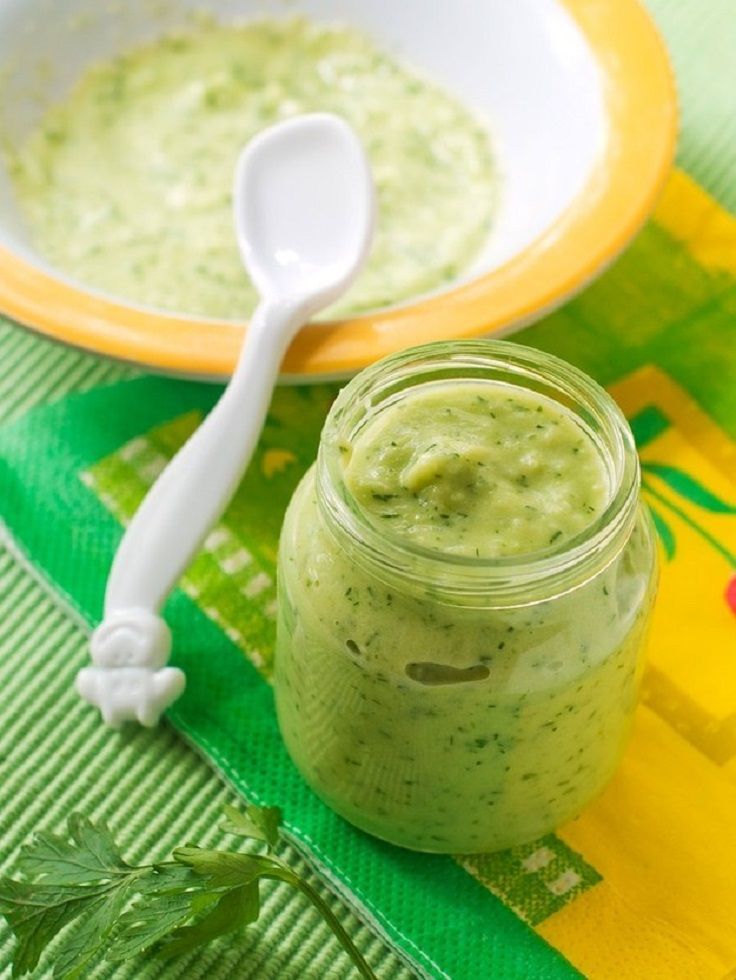
“After this report, we saw many people saying that you can solve this problem by making your own baby food at home. And we decided to check it out,” Houlihan said. “We suspected that we would find heavy metals in all types of food. After all, they are the ubiquitous environmental pollutants. And so it turned out: heavy metals were in products from all departments of the store.
Does buying organic help
Buying organic doesn't reduce heavy metals either. It is “not shocking or surprising,” says Professor Corkins. He explained that it is the soil and water that are contaminated with arsenic and other heavy metals. So it doesn't matter if the farming methods are organic or traditional.
However, buying organic can help avoid other toxins not covered in the new report, such as herbicides and pesticides, said Dr. Leonardo Trasande, director of environmental pediatrics at NYU Langone Health. He also did not take part in the study.
There are other benefits to eating organic food.